A year on, did Change UK change anything?
Hard as it is to imagine now, in the early part of last year there was a belief – somewhat desperately expressed – that a new politics might be possible in Britain. One not based on the two “legacy” parties, but that might be open to compromise, a certain fluidity of structure, pragmatism. The idea coalesced around a slogan, “politics is broken”. The question was, how to fix it.
One solution was proposed by a breakaway group of MPs, eight from Labour, three from the Conservatives, whose new party – the cumbersomely named Independent Group for Change or Change UK – was accepted by the Electoral Commission 12 months ago this week. Both of the main parties were in disarray, propping up leaders for whom there was no love in parliament. The government had recently suffered the biggest defeat in parliamentary history on the “first meaningful vote” on Theresa May’s doomed Brexit deal. If there was consensus on anything, it was that something had to give.
At the time of the formation of the new party, YouGov asked a poll question: “Would you say that British politics is working well or poorly at present?” Eighty-two per cent of respondents said poorly. The poll suggested a number of possible remedies. The most popular, with 73% agreement, was: “Parties and politicians trying harder to work together and reach compromise.” This finding was directly contradicted, however, by another solution: “Parties and politicians trying harder to stay true to their core beliefs” (57%). It was in the space between these two demands that the new party was conceived, and in which it quickly floundered.
In retrospect, the brief flame of the Independent Group – this time last year 18% of voters said they would vote for it in a general election – is illuminated by a few memorable images. There were, to begin with, the tentative speeches of the “magnificent seven” breakaway Labour MPs – Mike Gapes, Ann Coffey, Chris Leslie, Chuka Umunna, Gavin Shuker, Angela Smith, Luciana Berger – who stepped forward, one after the other, led by Berger, eight months pregnant, to offer heartfelt explanations why they could no longer be a part of a Corbyn Labour party. They were joined overnight by Joan Ryan, then the following day by three Conservative MPs – Anna Soubry, Heidi Allen, Sarah Wollaston – who, naively as it turned out, dubbed themselves “the three amigos”.
Certain collective pictures became memes. There was the photo opportunity in which all 11 stared up to the heavens as if the sky might be the limit. There was a selfie from an evening in which they gathered self-consciously for a cheeky Nando’s, and Twitter pored over the signifiers (“The difference is the last supper only had one Judas”). And there was the morning when they took their places together in the House of Commons, waving to potential comrades trying to avoid their eyes on either side of the aisle. The caption seemed to want to read: come on in, the water’s lovely!
In the last few weeks, I have been speaking to some of those who were at the heart of that rebellion, on and off the record, conversations that have emphasised that cliche of the past seeming like another country. My questions really, boiled down to one: did Change UK change anything?
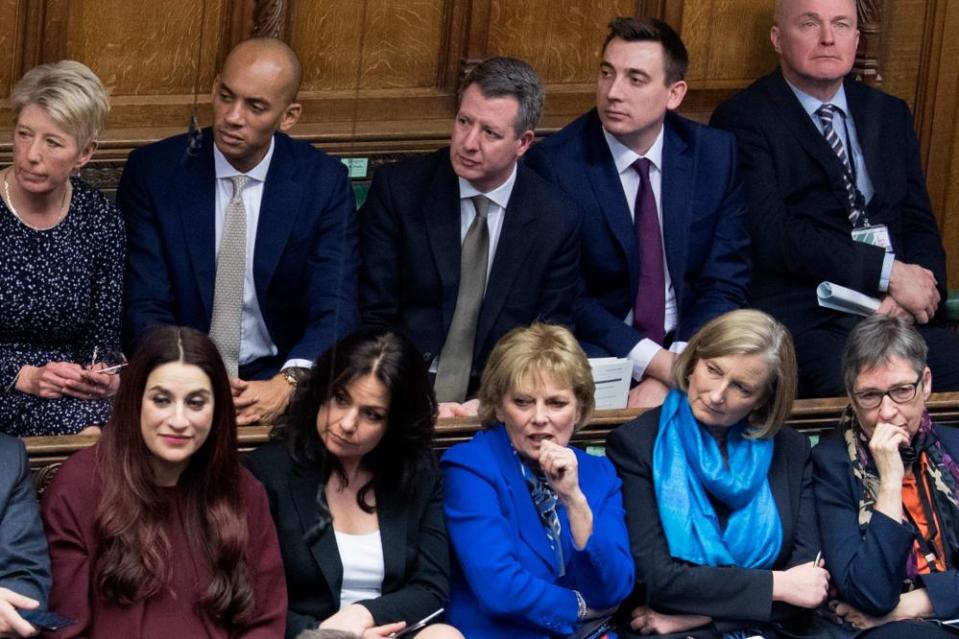
Those who were keen to talk – and several were keener not to reopen that recent wound – dated the beginning of the party to way before last spring. Mike Gapes, 27 years a Labour MP, long-time chair of the Foreign Affairs select committee, said the start for him was back in 2015, when Jeremy Corbyn was elected party leader. At the time Gapes was recuperating after two months in hospital with a heart problem. Recovery influenced his desire above all to be true to himself. He agreed with Umunna, who says that by the beginning of 2018, it had long since become “unconscionable to stand on a platform sponsoring someone to become our prime minister who I believed threatened our economic and national security”.
Anna Soubry, the Nottinghamshire MP who had become the firebrand voice of the People’s Vote on the Tory side, ascribes her motivation to the lies told in the name of the Vote Leave campaign. “It felt that anyone who refused to go along with a hideous populist agenda was just either ignored or howled down. We still need voices that say: Excuse me, that is not how we do things in this country!”
Gavin Shuker, who had represented his home constituency for nine years, dates the genesis to a meeting at his house in Luton between himself and Gapes and Chris Leslie, the former shadow chancellor, at the beginning of 2018. “In the 2017 general election,” he says, “many Labour MPs went around telling people on the doorstep that they could vote for us as candidates because there was no real danger of Corbyn getting in. We all knew he was completely unsuitable for office. My feeling was, after the result in 2017, that loophole was closed.”
At that meeting at Shuker’s house it was discussed how plan A was still to fight and reclaim the Labour party. It was also agreed that there needed to be “some people thinking what plan B might look like”.
Shuker had worked as an organiser in the church prior to entering parliament. He saw his role as “creating the psychological space” in which people might leave the main parties. On this basis he started to have conversations over coffee with 40 or 50 disgruntled Labour MPs. Their responses ranged, he says, from “Thank goodness someone is saying it” to “I agree with everything you’ve said, but I have five years to pay off my mortgage”.
Gapes, who had been in the trenches with Neil Kinnock “fighting Trotskyists and tankies who wanted to take over the party” in the days of Militant, now believed the coup had happened. He kept a little diary of his thoughts. “The questions that kept cropping up for me back then were,” he says: “Do you run away? Do you wait for them to come for you? Or do you do something to make a difference?”

The answer was made for him after he “vented on a WhatsApp group of friends about antisemitism and some kind person gave that to the Times,” he says. “The fact was, though, that all of us had our own reasons. For me it wasn’t about Brexit. It was antisemitism, Corbyn’s foreign policy, the deplorable comments about the Skripal poisoning.”
At the same time that Shuker was sounding out Labour MPs, Chuka Umunna and Chris Leslie, who had shared an office at Westminster, were having conversations with likely Tory MPs. Brexit had fractured party loyalties. Umunna was not sure at that time how many Tories would join them. “They were two to three years behind Labour in being hijacked by an ugly populism – in their case, of the right – and it was hard to tell when that would happen, to what degree,” he says. Several prominent Tory MPs told him “that they would hop on board” if it looked like Change UK would succeed. “But this was a bit chicken and egg – unless a critical mass of MPs defected from the main parties and joined, it would not succeed.”
Soubry was among those to take the leap, partly on the understanding that Umunna would lead the new party. She saw Umunna as a potential prime minister. “Abso-bloody-lutely,” she says. “I genuinely believed that.” She spoke to a number of Tories about the idea of resigning the whip. Several wavered, but the two that eventually agreed were Wollaston and Allen.
While the Brexit votes and debates were at loud-hailer volume within and outside Westminster, the commitment of various dissenters was being tested. A series of three clandestine meetings, two-day overnight gatherings, were organised by Shuker at a farm in East Sussex for the “20 or so” Labour MPs who were then seriously considering defection. The first time they all sat down for dinner, “there were people in tears around the table”, Shuker says, as members discussed abandoning a lifelong commitment to the Labour movement.
At the time the thinking was not to form a new party, Gapes says, at least not yet. “We thought of it in terms of trimesters,” Shuker recalls. “The first trimester was the one we were in. The second would be as an independent parliamentary group, which would go on as long as possible while we agreed how to do the technicalities. The third would be as a political party, which meant that we would be judged by those standards. In the event, the second and third of those phases collapsed into each other and we obviously failed.”
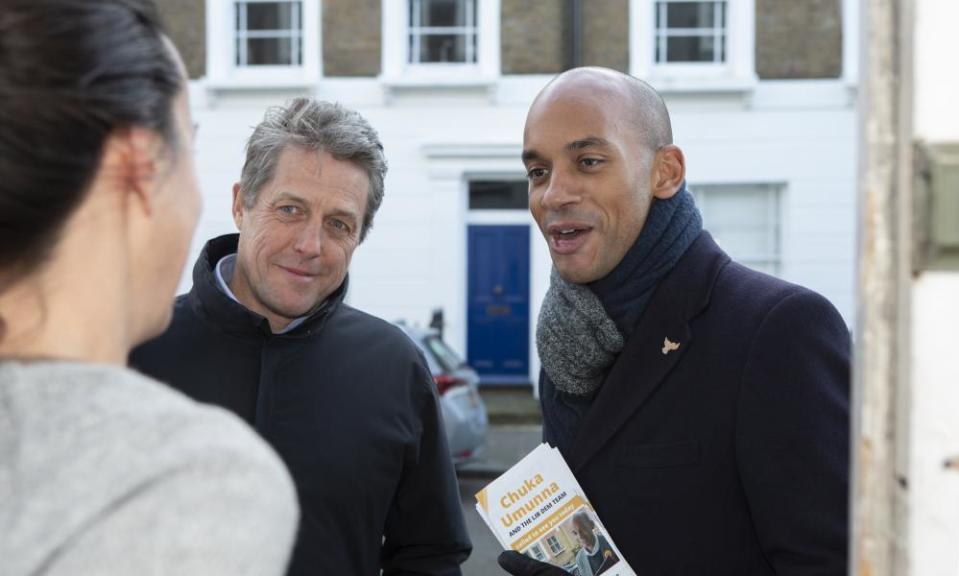
That language of gestation was pointed. As Gapes observes, they had, in Berger’s pregnancy, a very real deadline to make the change – it had to happen before she departed on maternity leave. “That helped to sharpen it,” Shuker says, “and in February a parting in the clouds emerged.”
Chuka Umunna had the chance to take responsibility on more than one occasion and he chose not to do it
Anna Soubry
Secrecy was paramount. “I told my mother, a lifelong Labour member, that I was going to make a big announcement on TV, but I didn’t tell her what it was,” Gapes, 67, says. “I didn’t tell my brother, a lifelong trade union activist. Mainly because I didn’t want anyone to talk me out of it.”
Those I spoke to can still just about recall the heady optimism of that moment of departure – hundreds of thousands of people signed up online as supporters, donations started flooding in. For Soubry, if there is one thing that changed everything, it was watching Luciana Berger stand up and be counted.
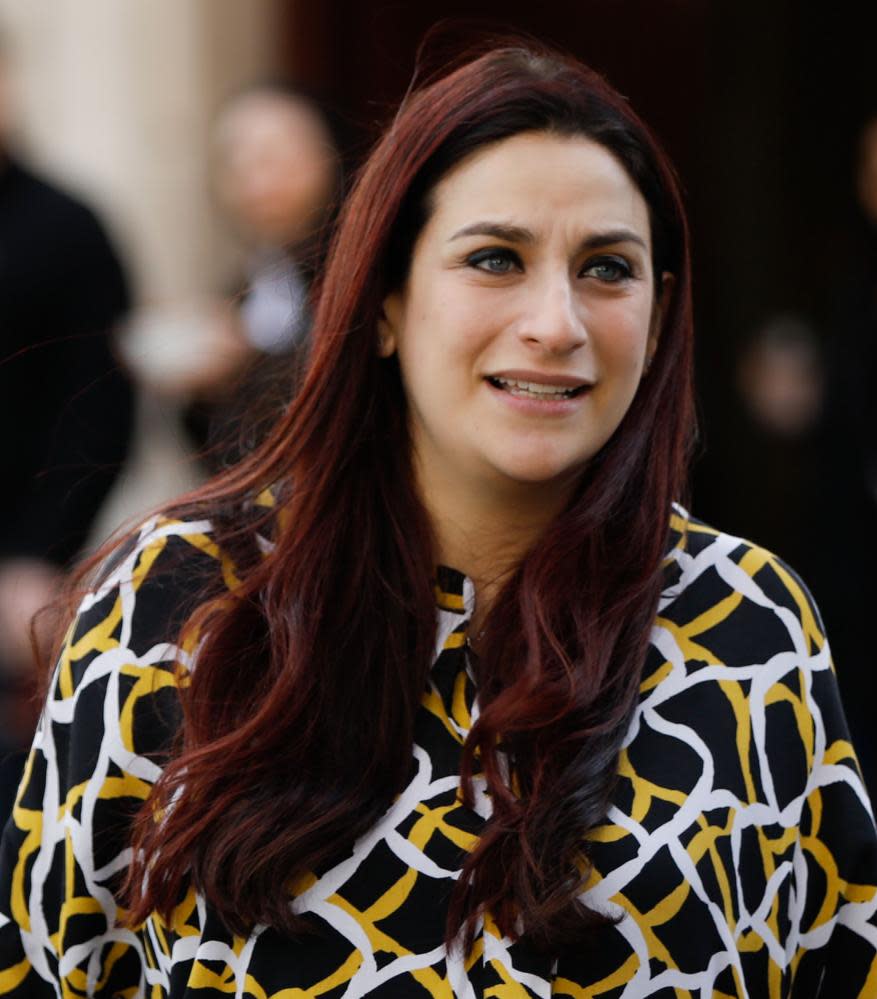
“I think that will stand as the iconic moment,” she says. “Luciana was very striking, heavily pregnant, and the sight of her saying she had left the party that had been her life because as a Jewish person she had been hounded out… I think that was the moment that completely destroyed Corbyn’s chances of ever getting elected.”
Even at the time of the Nando’s summit, Soubry was adamant in her faith that she was joining a new party led by Umunna. She still believes that things might have been different if the former Streatham MP had taken on the responsibility as promised. “He had the chance on more than one occasion and he chose not to do it,” she says. She never had an explanation.
Related: Independent Group for Change to be disbanded
Umunna rejects the idea that he reneged on any promises to lead, saying that the proper time to settle the question of leadership would have been in the autumn of 2019, once the group had a proper structure. Shuker puts that reluctance to take responsibility down to the planned progression of the trimesters. For the new group to get any traction, it needed as many defectors as possible. “People would say, this sounds attractive, but I don’t want to hitch my future to one person’s vanity project,” Shuker says. “Chuka is someone I respect and am still friends with. At one point I had to give him a list of 20 people who were telling me that they would not join a political party led by him, because they thought there should be a more collaborative process. A flatter structure.”
That flatter structure quickly came up against the Electoral Commission. The group reckoned they had maybe a one-in-five chance of becoming a real political force, but if there was an early election “they would probably be screwed”. When the party formed it was far from clear that the UK would take part in the European elections planned for May – constitutionally it appeared absurd.
When the EU insisted that in the absence of a Brexit deal Britain must take part, however, the group was forced drastically to accelerate its plans. “We had no organisation. No membership. No name,” Gapes recalls. “We tried to register ourselves as the Independent Group and the Electoral Commission would not allow that. So we then became the Independent Group for Change Not ideal. We had a good logo, but that was rejected because it had a hashtag in it. And we imagined we could share the leadership, but the Electoral Commission insisted on us naming one leader.”
The Lib Dems set out to kill us and they ruthlessly did so – as they have done to others in the past
Mike Gapes
Heidi Allen, the least experienced of the MPs involved, who had been selected for the safest of Tory seats in South Cambridgeshire in 2015, was installed as a compromise interim leader. “Heidi had some great qualities,” Gapes says, “but she was completely inexperienced as a campaigner.” Having selected a list of 70 candidates from 3,500 applicants in a frenzied Easter weekend of interviews in a London hotel suite, there was immediate confusion about whether to collaborate with other parties. Acting on dubious promises of a united Remainer front, Gapes says, “Heidi started telling people to vote tactically for the Greens or the Lib Dems. And of course the Lib Dems set out to kill us and they ruthlessly did so, as they have done to others in the past.”
Umunna suggests that he knew the writing was on the wall as soon as they had to fight the election, which was a “lose-lose” decision. Until then, he says: “We presented no threat, and even traditionally Tory-supporting media were favourable, because they admired the stand we had taken against Corbynism and the hard Brexiters. However, as soon as we registered as a party, the entire establishment – Labour and Tory – turned their fire on us.”
New parties might survive many things, Shuker suggests, but they cannot survive ridicule. “The ambition when we launched was to get to the end of the week without becoming a punchline. And we did that pretty well. But you get one shot at forming a political party and if you end up in the calamity that was the European election campaign, where we literally did become the punchline, there was no coming back from that.”
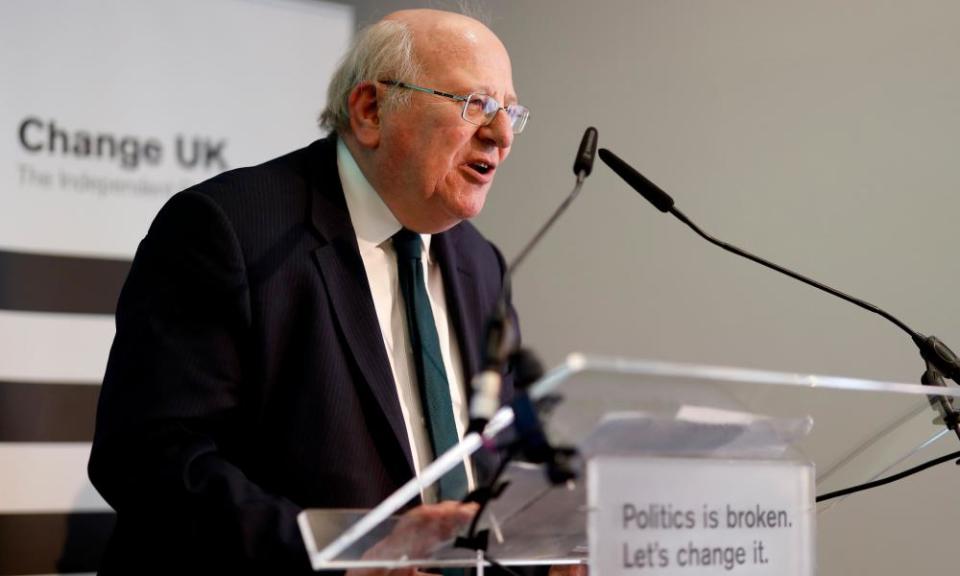
The new ideals of consensual politics did not work in the heat of media scrutiny of a campaign. The street fighters in the group who had prevailed in marginal seats over the years came up against those who had a slightly dewy-eyed faith in a “movement” in which things could be done differently. The split was generational as much as ideological. Soubry suggests that “those with deep experience of winning tough elections – Mike, Joan Ryan, Anne Coffey – were elbowed out a bit”.
Far from modelling a new politics, the group started to look like they had brought with them the ingrained habits of rats in a sack. “There were a lot of egos,” Shuker says. “At one point I brought in FTSE 100 executive coaching to try to get the group to realise that the biggest threat we faced was holding on to the culture they had left behind. But then you found that some people could not resist going back to the old ways of anonymous briefing to the press and so on.”
Umunna puts those clashes down to the inability of some in the group, including himself, to understand the cultural difference between “making the weather in one of the two main parties” and “surviving as a third force”. The result of the European elections, in which the group polled 3.4% of the vote, was a fatal falling out, with old friends Umunna and Leslie on opposing sides. “We were a group of 11 that split into two taxis,” Shuker says. “Which is a bit embarrassing.”
After the results came through, there was a showdown, Gapes says, between the six who wanted to close the party down – Ummuna, Allen, Berger, Smith, Shuker and Wollaston – and the other five older hands who thought they should battle on. Parliamentary politics after all was as fluid as it had ever been. “But the six decided no. There was no mention in any of that, of anyone joining the Lib Dems. None whatsoever,” Gapes says. (That is not quite how Umunna remembers it, he says, in that he “didn’t rule out” the possibility.) Within weeks, all of those who left, apart from Shuker, joined the Liberal Democrats.
Soubry became the reluctant leader of the remaining five. Over the following months, her most significant role in that capacity was to sit in on meetings that tried to resolve the impasse over Brexit. At one point in October, as prime minister Boris Johnson dissolved parliament and tried to keep open the idea of no deal, it seemed likely that an interim government might form. “But the thought of me going back to my group and saying ‘Right guys, the plan is we’re going to rally behind Jeremy Corbyn’ was never really going to happen,” Soubry says.
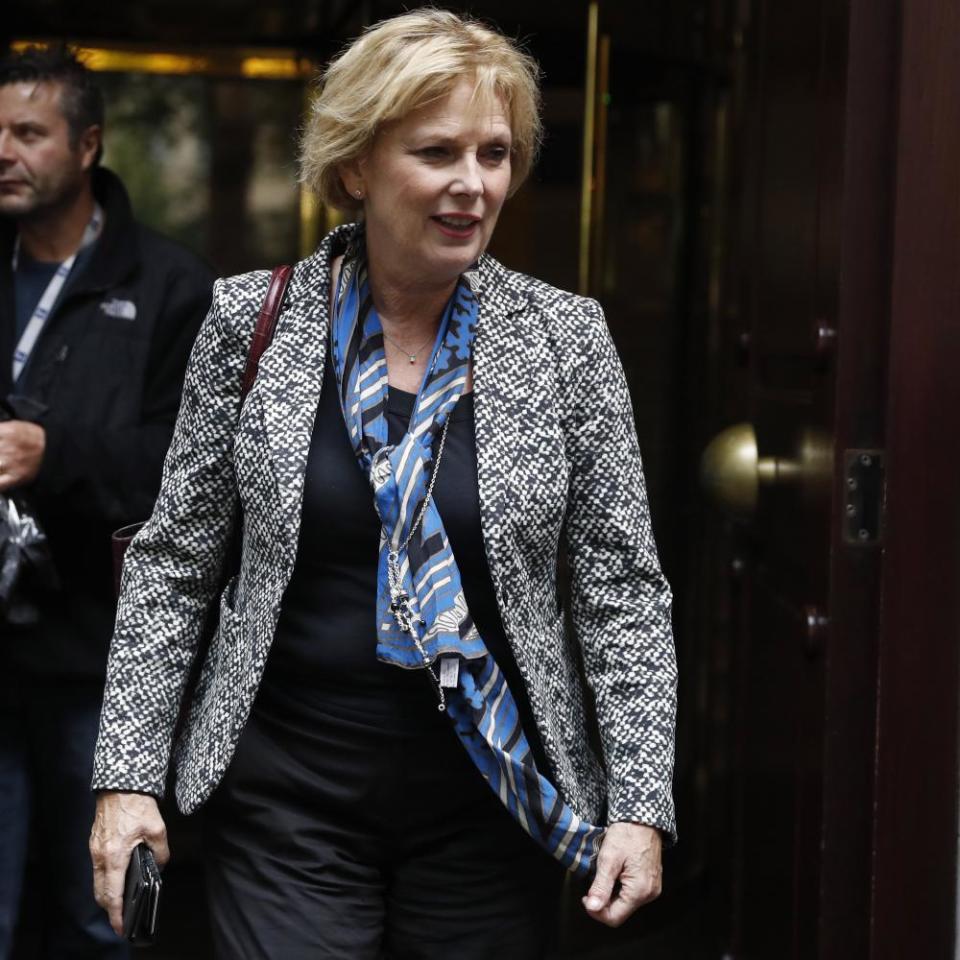
At the general election in December, not one of the original 11 defectors was elected. Does Soubry regret their efforts?
“Not for a moment,” she says. “I think truthfully, I’m now 63, I was 62 at the time. I didn’t have a mortgage to pay. But the people with real courage were the ones like Chris Leslie, who gave up a potentially great career in the Labour party, and who did have mortgages to pay.” She still believes that the forces that produced their party will “come back and bite. We can’t have a situation where the prime minister is surrounded by sycophants and there is no credible opposition. If Starmer does prove he is the man who can reform the Labour party, then there is some hope. But if he is unable to do that – and I fear he will not be able to stand up to the Trots – then we really have problems.”
What does she make of those who so obviously swallowed their principles – I mention Nicky Morgan, though she doesn’t – for the promise of reward?
“There are a few where you think, how do they look themselves in the mirror?” she says. “I assume they say: ‘I did the right thing for my family.’ But if you are in politics that can never be enough in my view…” She plans to write a book about her experiences. “It’s funny,” she says, with a laugh. “After the event, a very senior Labour politician said to me: ‘Why didn’t you just speak to me first and I would have told you what Chuka is like.’”
Umunna himself, at 41, is more philosophical about the defeat. He’d never been fully accepted by the Labour membership, and saw Change UK as a last political throw of the dice in a way. He knew if it did not work out there would be offers for him to resume his former legal career in the city. “I was,” he says now, “determined to be out of politics by the time my children [his eldest is three] reached an age where what I do would encroach on their lives in ways they were aware of – I think it is incredibly challenging to have a parent in politics, with all the abuse and threats they see you subject to.” He insists he has no intention of returning to stand for parliament, but remains proud that each one of the group followed their conscience.
Mike Gapes also went down fighting at the election. Did Change UK change anything?
“I think we had a moment when we could have made a difference,” he says. “Even in the autumn if Corbyn had been big enough to say, I will stand aside for an interim prime minister, whether that was Margaret Beckett or Ken Clarke, that could have been a game changer. But a Johnson-against-Corbyn election was always going to be a no-brainer.” At his constituency after the count, Gapes got up and talked about the Labour party’s proud history. “I said I was sad that it was led by a man who was unfit to be prime minister but that I was glad that the British people agreed with me.”
Gavin Shuker was among those – along with Chris Leslie – who had more to lose than most from his rebellion. When we spoke, he was in the middle of self-quarantine as his wife had mild symptoms of the virus; he was not finding that lockdown was conducive to job-hunting. Still, he believes standing up for his principles was the most rewarding experience of his political life. He has been spending his afternoons, like all of us, watching the briefings about coronavirus. “People might ask me in 30 years ‘what did you achieve in your time in politics?’,” he says. “I’m no fan of this government obviously. But still, I will be able to say I helped prevent Jeremy Corbyn from leading us through a huge national crisis. And to be honest, I’ll take that.”

 Yahoo News
Yahoo News 
